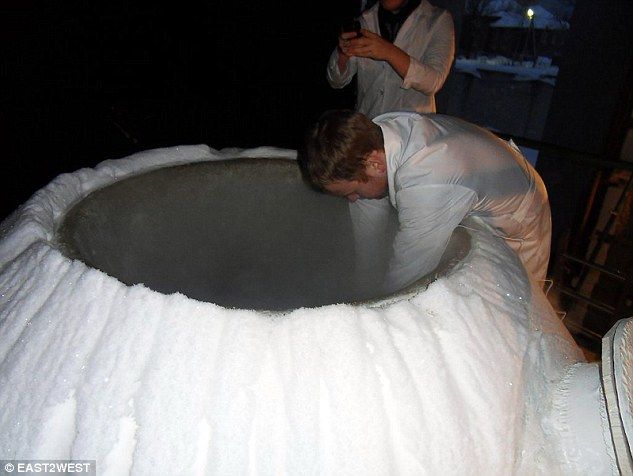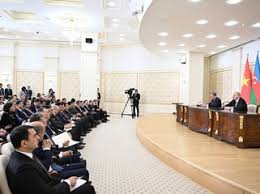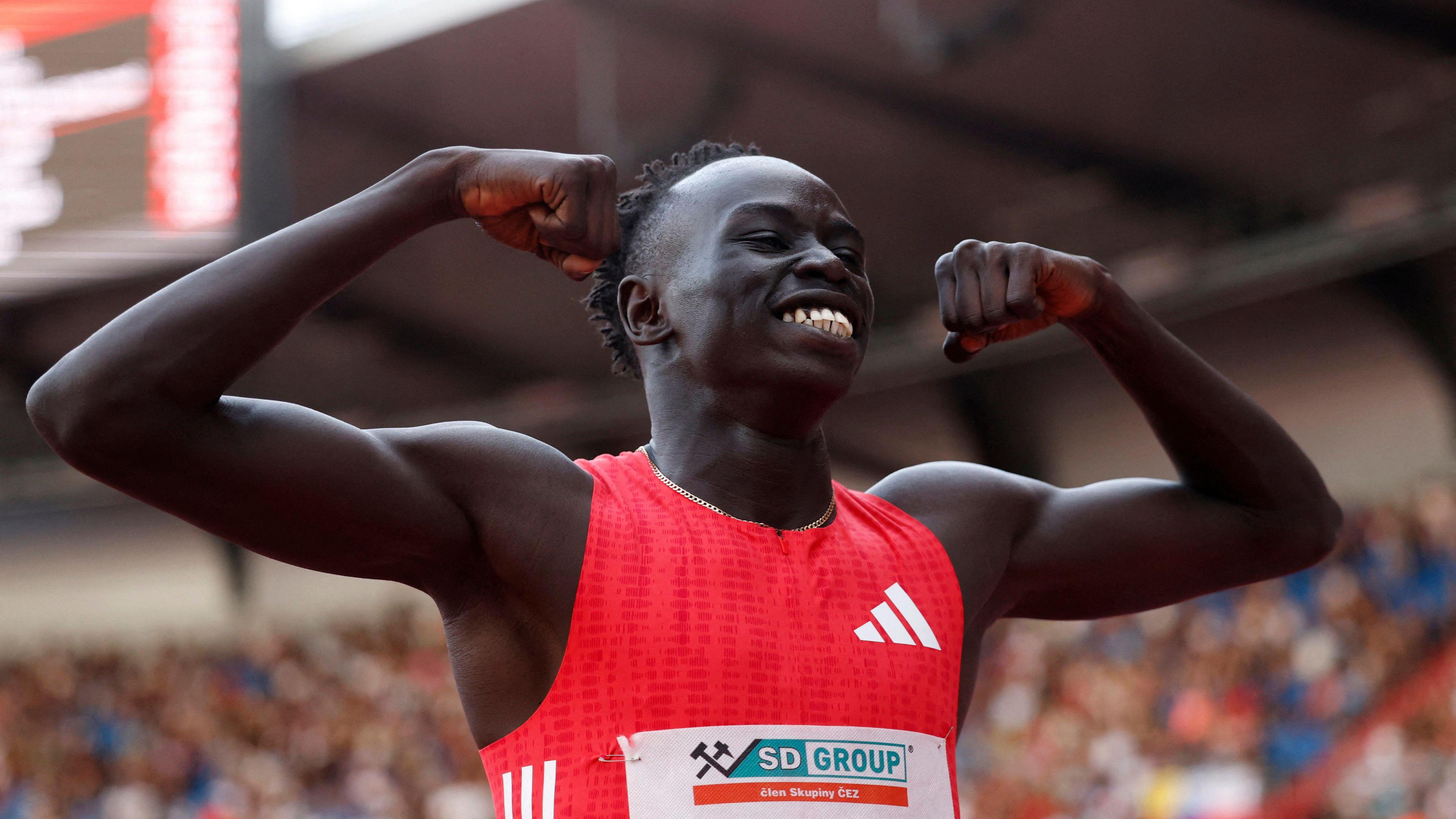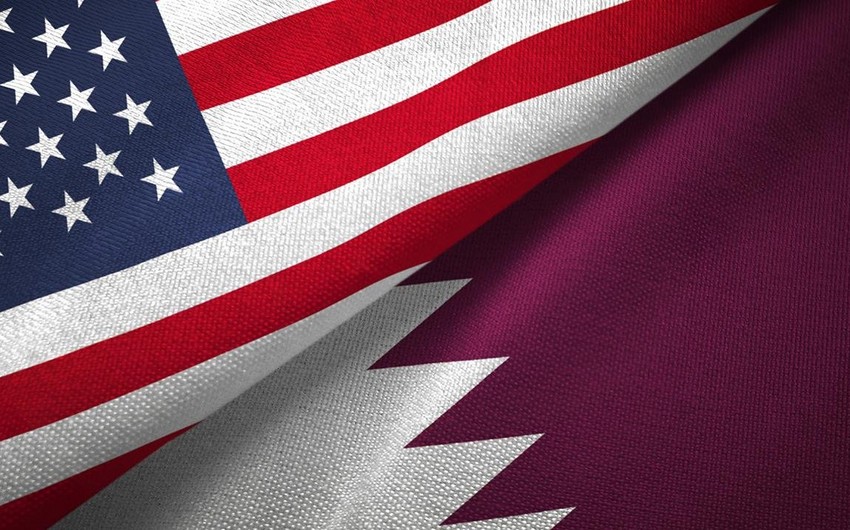British people are paying a Russian company up to £29,200 to be cryogenically frozen when they die in the hope that they will be brought back to life in future.
The KrioRus firm claims it offers 'bargain basement' prices compared to American labs, with a special deal to freeze only the human brain for £10,000.
The brain would then be defrosted and placed in 'new' human body when technology allows.
A professor of medicine and a scientist have both signed contracts with Moscow-based KrioRus, as has a pensioner, MailOnline can reveal.
When they die, their frozen remains will be packed in dry ice and flown or transported overland to Russia, to be stored for decades, centuries or even longer in large Dewar flask deep freezers located inside a modest, unheated
warehouse in a quiet snow-covered village surrounded by private houses some 47 miles northeast of the Kremlin.




In future, if and when nano-technological advances allow, they hope an attempt will be made to coax their corpses or frozen brains back to life.
For some, this is a sci-fi nightmare and a macabre affront to nature, for others a realistic prospect and a tantalising step towards everlasting life.
The procedure here is the same as was used to preserve the remains for British 14 year old cancer victim known only as JS, who went to court last year in her final days to allow her body to be 'frozen' at a facility in the US, in the hope she could resume life in the future after a leap forward in medical understanding.
This Russian company - which now has 52 bodies or brains in its storage flasks filled with human remains, and is actively seeking more clients - claims to offer a more cost-effective 'service' to its 'patients' than in America.
MailOnline was given exclusive access to the facility as the giant tanks were given their bi-monthly refill of ultra-cold liquid nitrogen.
A ghostly fog gushed from the vats of human remains as the engineer infused these containers with the required dose of this chemical cocktail.





Draped around are the flags of the company's clients, the only flashes of colour in this clean but austere repository.
Privacy laws prevent KrioRus naming its customers without their prior consent, but general-director Valeria Udalova, 56, said two British clients were men now aged around 60, and they have signed the relevant paperwork so their instructions to be cryogenically preserved will be carried out on their deaths.
One is an eminent professor of medicine who had opted for whole body deep frozen for the future.
'Another British patient is a male scientist who has chosen to have only his brain preserved,' she said.
In such cases, people hope that the brains could be implanted in a future brave new world to an available healthy - and perhaps younger - body.
A third is a retired man from the UK - whose previous occupation was not disclosed - who also chose brain-only freezing.
A fourth, 'a male student from a London suburb' is currently sorting out the wording of his contract, but he planned to opt for whole body preservation, she said.


'None of them are seriously ill or expected to die soon,' she said.
She claimed the prospect of returning to life in the future is real.
'All our patients have a chance to be brought back to life, it depends only on speed the development of nanotechnologies,' she said.
'There is no time limit at all.
'It can be 1,000 years or more if necessary, but I do hope science will find a way of bringing them back to life much earlier.
'If the speed is high, it may happen in as little as 40 years.
'Of course, the patients will be defrosted in that very state in which they were cryogenically preserved, and at precisely the exact age' - since their bodies have been frozen in time.
'Their future lives will then depend on the successes of medical advances by this time.'
Some mainstream Russian scientists strongly dispute the science behind the claims of future resurrection, and even the claims of the cryology 'experts' vary considerably.
For example, KrioRus chairman Dr Danila Medvedev, 36, is on record as predicting that 'after 2030 there will be technologies letting us to bring people back to life, or at least their brains' and also claiming: 'By 2050 this procedure
will be available to the masses.'
Leaving aside these inconsistencies, Mrs Udalova claimed the costs of being frozen for the future in Russia are far less for foreign clients than in the US, yet the prospect of coming back to life does not come cheap.
KrioRus charges £29,200 for whole body preservation, or £9,750 for keeping the brain only for posterity, known as neuro-preservation.
The only extras are the transportation costs, she said. From Britain, for example, this might be an additional £2,500, although families could opt for more expensive options.
The fees compare with a reported £37,000 cost for preserving teenager JS's body in America, but Mrs Udalova claimed that the fees for US preservation can be much higher - for example once advertised price is as much as
£162,600 with surcharges, while there are also seem to be more competitive offers.


'But please don't think that we deal only with rich people,' she urged.
'Recalling the professions of our clients, the first was a biotechnologist, then we had a patient with a PhD, next we had a woman, a mathematics teacher.
'We also had a woman who was just a storage attendant.
'Her the family gathered money to cure her from cancer but she died quickly and they decided to spend this money on her cryo-conservation.
'A woman from Japan was a housewife. We also had a rich businessman who preserved his wife.
'But we understand that those families who, for example, lost somebody with cancer rarely have a lot of money.
'We offer them payment by installments, over two or three years.
'In terms of keeping the patients in perpetuity, in fact we we do not charge anything additional to the upfront fee.'
The aim is to have the money paid in advance, after which there are no costs to relatives of the deceased 'who may die or lose interest in cryonics'.

She said: 'There was a sad story in the USA when a number of bodies decomposed because the company collected regular payments but one day it ran out of money.'
Mrs Udalova is entirely convinced about the prospects of a second coming through cryonics, and said that she had frozen her own mother.
'She was not so positive about it when she was alive, but I managed to persuade her,' she said. 'She was cryogenically preserved by our company in 2008.'
Her family dog Alisa was also cryo-preserved, a first in Russia when it happened.
And Mrs Udalova,too, will be preserved when her time comes.
So far the remains of 13 foreigners are held inside these tanks, at a temperature of minus 196C - far colder than a shivering Siberian winter which, at worst, hits around minus 60C.
'Three of them are Ukrainians, two from Italy, and the others from the US, Australia, Belarus, Estonia, Israel, The Netherlands, Switzerland and Japan.
'In total we have the bodies or brains of 52 people and 20 animals.'
'We don't have children or teenagers, and the youngest patient is 23,' said Mrs Udalova, who has qualifications in aerodynamics and thermodynamics.
'But we keep one DNA sample - a piece of skin - taken from an 18 months old baby who died from cancer.
'We negotiated it with parents that the baby's personality has not developed at such an age - so they decided to store just the DNA sample.'
There are 20 animals in all that have been preserved here alongside the human remains, all supposedly with the hope of a return to life later.
These comprise seven dogs, eight cats, three birds......and one chinchilla called Knopochka, or Little Button.
The chinchilla had an accident in 2014, banged its head, and died, an upsetting event for the four children of its owners, who opted to freeze the pet for the future.
The incongruous facility pictured here is in Semkhoz, a village that is a suburb of the small city of Sergiev Posad, and is one of several stores in Moscow region.
Nearby are traditional Russian wooden houses, and a couple of rusting Ladas, hardly emblems of the technological frontline.
When KrioRus opened here in 2012, some locals objected to this icy necropolis being set among their homes, but a petition was ignored by the authorities.
'We use Dewar flasks for preservation of the patients bodies and brains,' she said.
Each of these white vats can fit ten human bodies, with a number of brains fitted in as well.

'A major problem we had before was that traditionally manufactured Dewar flasks had very narrow holes,' she explained.
'At least narrow for our purposes, I mean.
'Now we have started our own production line of these large large containers with big enough holes and we can make as many as we may need.
'We can also supply them to other storages, for example to a new place that is planned to open in Australia.'
She praised the teenage girl JS who pleaded successfully with the English courts to be allowed to be frozen after death.
'All of us here have been absolutely fascinated with the recent story in the UK when a young girl insisted on cryo-preservation of her body,' she said.
'With the help of our friends in the UK we got hold of the full court judgment - and we will translate it into Russian and publish on our website.
'It was a major historic event in cryonics, with incredible importance for society.
'Well-done to this little girl.'

She is effusive in her praise for this dead child.
'You are the cleverest girl in this world,' she said.
'She was terribly unlucky. It is horrific to die at the age of 14, but her golden brains will be a credit for society in future.
'I have known many people who could not resist the influence of their families - and here we see a young girl brave enough to appeal to the court.
'To me, she is one of outstanding people of this world.
'My son is 15 but I doubt he would go that far to protect his rights.'
Her view is at odds with the estranged father of the British girl who accused the American cryogenics company of 'selling false hope to those who are frightened of dying'.
RUSSIAN SCIENTIST BEHIND CRYOGENICS WILL NOT BE FROZEN HIMSELF AFTER DEATH
The Russian scientist who invented the chemical cocktail used to preserve the remains of JS - the British teenage girl cryogenically frozen in America - has revealed that he has no intention of undergoing the same process when he dies.
His methods are also used by KrioRus, where he used to work.
Dr Yuri Pichugin says he supports the desire of those wanting to come back to life in the future, but fears man will destroy all humanity before it becomes technically possible to 'resuscitate' them.
The 65 year old said: 'I will not undergo cryo-preservation myself - but not because I don't believe in the success of cryonics as a scientific technology.
'I am deeply disappointed with mankind.'
Having devoted his life's work to bringing people back from the dead, his reluctant conclusion is that it will never happen - due to human frailty.
'The Earth has been, is now, and will be, a planet of barbarians and idiots,' he said.
'If rational beings had come to Earth, they would be horrified.
'Instead of fighting diseases, aging and exploring the possibilities of prolonging life, people use 90 per cent of their resources for eliminating themselves, directly or indirectly.
'People have learned very well to destroy each other and they do not intend to study how to protect each other, as rational beings would have done.
'Mankind will eliminate itself as soon as nanorobots are created.'
The scientist invented the solution that is used to infuse the blood vessels of people who opt for the chance to come back to life.
Companies offering the facility in the US and Russia use his method.
Of JS he said:
'In theory her body is preserved for millions of years, but if mankind destroys itself in - let's say - 27 years, there won't be anybody to add liquid nitrogen and the body will defrost.
'(But) if mankind does not destroy itself, one day nanotechnologies will be properly developed and she will be resuscitated.'
Despite his own refusal to be frozen for the future, he denied claims by JS's father that cryo-preservation offered 'false hope' to vulnerable people.
Dr Pichugin claimed that even 'the smallest chance of returning to life' is 'better than the alternative, which is zero'.
As a rookie scientist in the Soviet era, Pichugin quit the Young Communists because the all-powerful Party 'did not pay attention to the problems of immortality'.
He said: 'When I asked if there was even a one in a million chance of my daughter being brought back to life, they could not say there was.'
He told The Mail on Sunday at the time: 'I think it would be doubly impossible to both bring her back from the dead and cure her cancer, and companies should not hold out some false hope.'
Mrs Udalova insisted reassuringly that 'although this is our business, we are always glad to know when our patients keep living.
'For example, in 2016 we signed 14 contracts and only one person died. The other 13 are still living and we are happy for them.'
The woman who died last year was Italian Cecilia Iubei, 85, who was named by her family.
Pictures released by her family show the dry ice covering this grandmother's body as it is prepared for transportation to Moscow.
Mrs Udalova said that they instruct doctors of their clients on carrying out procedures to ensure the body's preservation from the moment of death, so it can be transported to Russia.
Or for an extra charge, the Russian doctors can fly abroad to undertake this.

Two procedures are essential.
One is to wash the blood out of the body and replace it with a cryo-preservation solution.
The second is vitrification - deep cooling that does not result in crystallizing of the tissues.
The blood in the candidate for resurrection is replaced by a special vitrification solution designed by a Siberian-born scientist, Dr Yuri Pichugin. This is also used at the Cryonics Institute in the US.
'First, 10% ethylene glycol is perfused into the blood vessels of the patient's head, then 30% ethylene glycol is applied,' he explained.
'Finally a solution that consists of 35% of ethylene glycol and 35% of dimethyl sulfoxide is perfused until the head is fully saturated.'
At the same time 'the body is being cooled down from 0 C to minus 127 C.
'Then both the final solution (fluid) and the tissues of the head harden and turn into glass-like state which is called vitrification,' he said.
'The difference between vitrification and simple freezing is that vitrification does not produce crystals of ice that is the main destroying factor for cells and tissues.
'Neither the head of the patient, nor the body is needed to be kept in such a solution (fluid), it is enough just to perfuse it via blood vessels.'
Cooling is then reduced to minus 196C.
A video (see below) shows the perfusion process underway by a KrioRus medical team on a dog.
Mrs Udalova admits there are religious objections to the process of preserving the dead for a later afterlife, but brushes these aside.
'I am not a believer but I often have to discuss our business with religious leaders and priests,' she said.
'In general, they are scared of anything that sounds new and unknown to them, but I am sure we are not offering anything that goes against religion.
'After all, we just have to recall the Bible: didn't Jesus bring Lazarus back to life?
'The relatives of our patients often put crosses and little icons with the frozen bodies.
'And actually, they do treat our storages as cemeteries.
'Many come here to spend some time with their beloved ones.
'They stand near Dewars, touch them. We always leave them alone there, to be with their feelings.'
She claimed that the Russian expertise in this field is being tapped by other countries as they seek to develop such services some 50 years after the first man was cryogenically preserved in the US.
The anniversary of 74 year old James Hiram Bedford's death will be marked on 12 January.
He was a University of California psychology professor who wrote several books on occupational counselling, and his remains are held at the Alcor Life Extension Foundation in the US.
Mrs Udalova said: 'We are supervising the development of cryonics in several other countries like Japan, Italy, China, Australia and probably Germany. EU countries plan to found a Cryonics Association in Europe and we hope to run it.
'Regarding governmental support here in Russia, I am proud to tell you that we have received our first ever grant for creation of the computer programme for vitrification. This will take care of the cooling speed which seriously affects the quality of cryo-preservation.'
In Russia, there are many voices from eminent scientists who dispute the prospects of the dead coming back to life.
Irina Siluyanova, head of the Department of Bioethics in Pirogov Russian National
Research Medical University, has publicly condemned such services.
'World science has recognised that frozen human organisms cannot come back to life,' she said.
'Russian physicians think that cryonicists are something akin to wizards or sorcerers or the promoters of pseudoscience.'
Evgeny Alexandrov, head of the Russian Academy of Science's Commission to Combat Pseudoscience and Falsification of Scientific Research, warned: 'Science is now able to freeze and recover single cells - in particular, very important, human egg cells, sperm, and individual organs of some lower organisms like reptiles, but cryonics simply exploits the human fear of death.
'I cannot imagine any physiologist sincerely believing that it is possible to revive the frozen people in vaguely distant future.'
Promises of a future life for the dead include 'elements of fraud'.
Any attempt to preserve people by freezing them is based on guesswork, he said, since no-one actually has any experience of reviving a human.
Nikolay Shubin, head of the Cryobiological Scientific and Research Centre of the Russian Institute of Cytology, said: 'I applaud the desire to move in this direction, to carry out scientific research, but I think to do such things in practice is vicious.
'Frosting corpses is meaningless.
'Death is the irreversible stop of life. Death is death.
'No nanorobots will be able to revive a person, God is the only one who can resurrect.
'You can inject any cryo-protectant, even platinum (but) nothing will help.'
Pavlov Institute of Physiology scientific secretary Dr Alexander Chuykin said: 'The chances that bodies are now frozen in the correct way is almost equal to zero.
'At the moment, they just freeze corpses.
'The problem is not only how to unfreeze the body, but also in how to revive it.
'And the fact that frozen brains can be placed in a cloned body - well, it's just a fairy tale.
'We see that in the nature it is possible to cool the body, and then to return it to life.
'But this is a cold-blooded frog, not warm-blooded people.
'There is the path, but no technology. And, in my opinion, keeping the frozen bodies at the moment - it's just commerce.
'And quite deceptive commerce.'

































